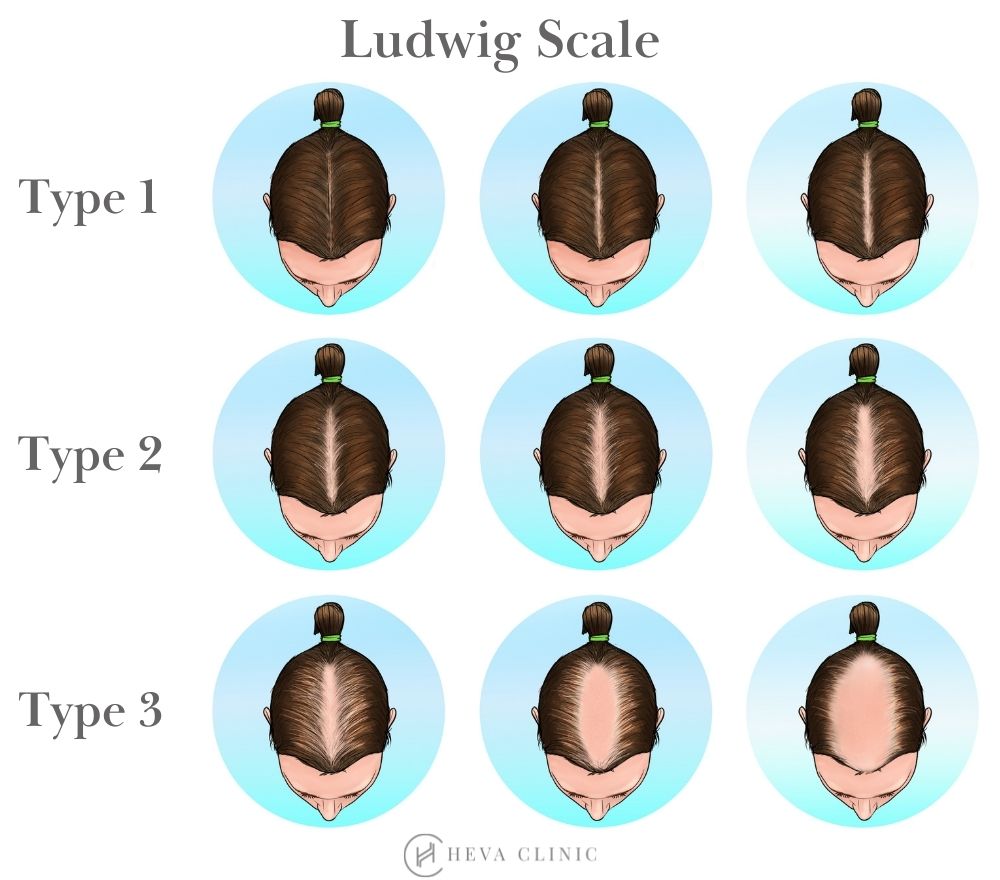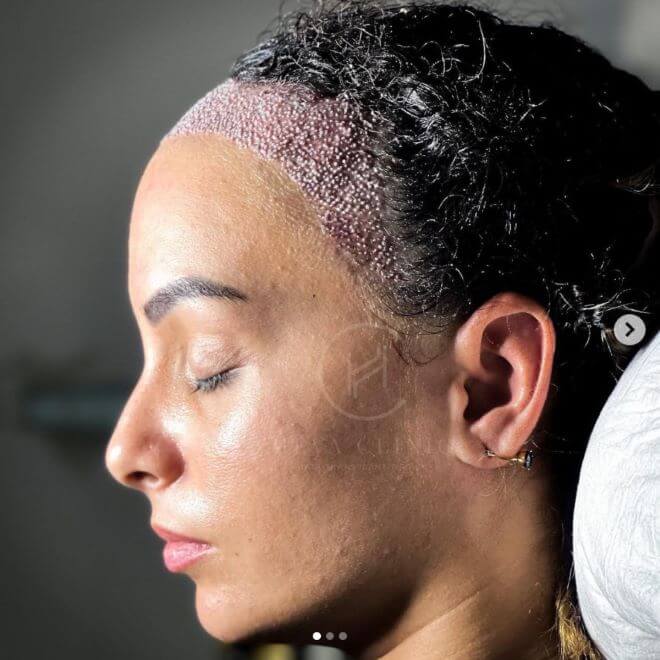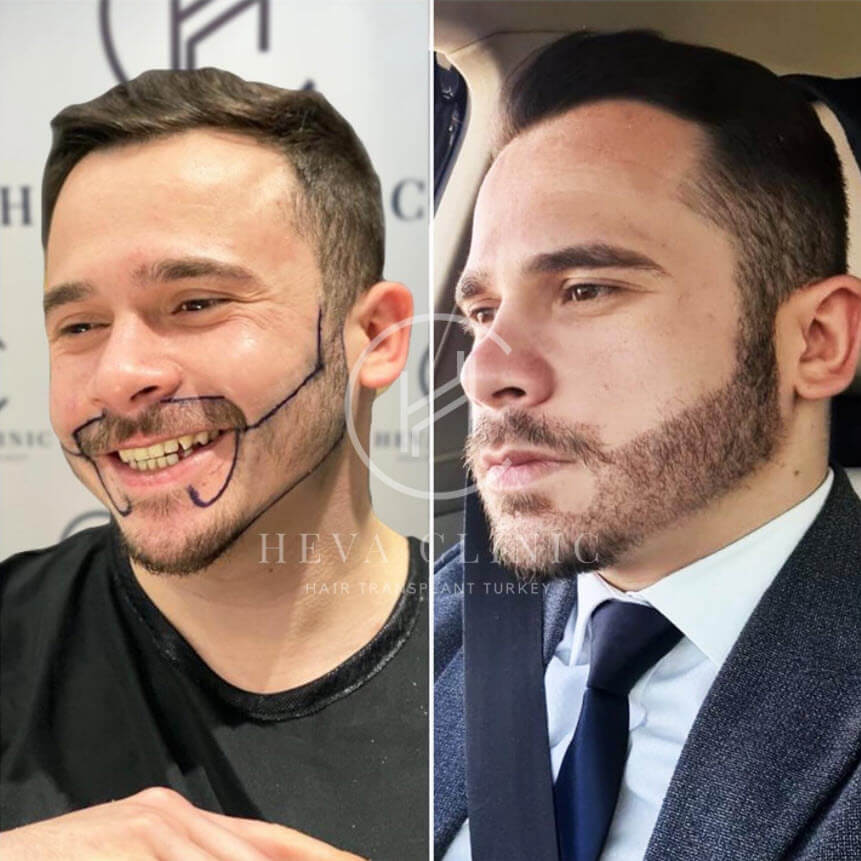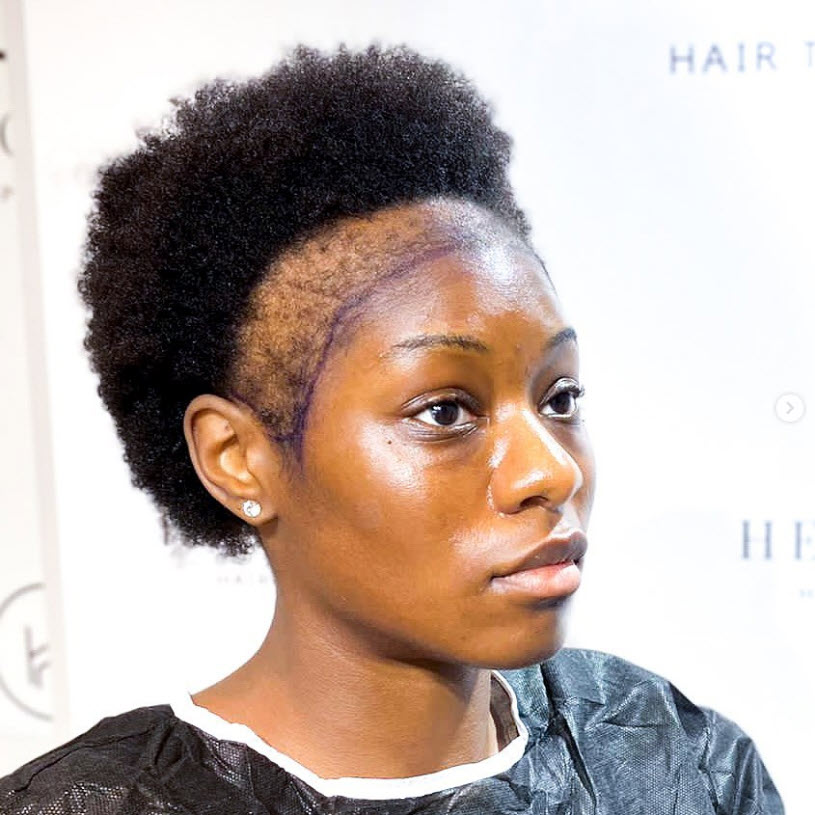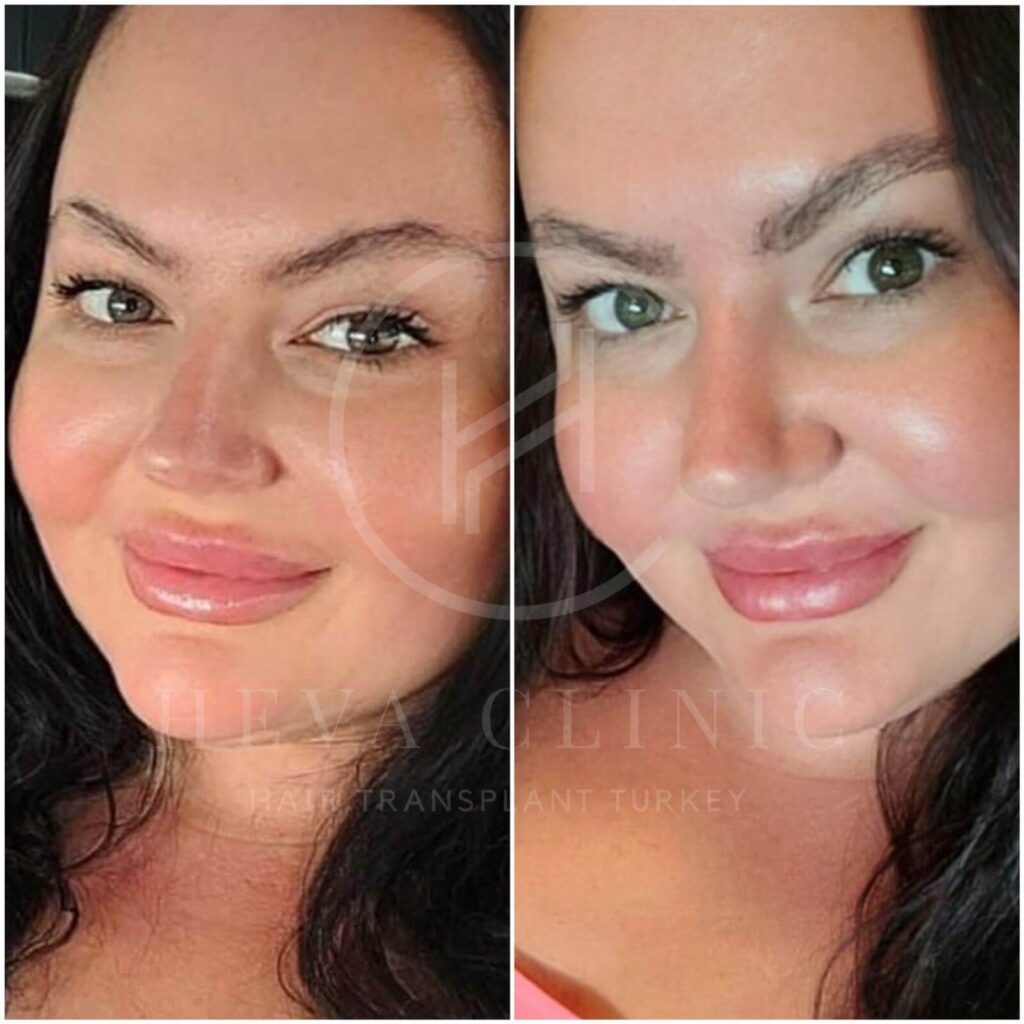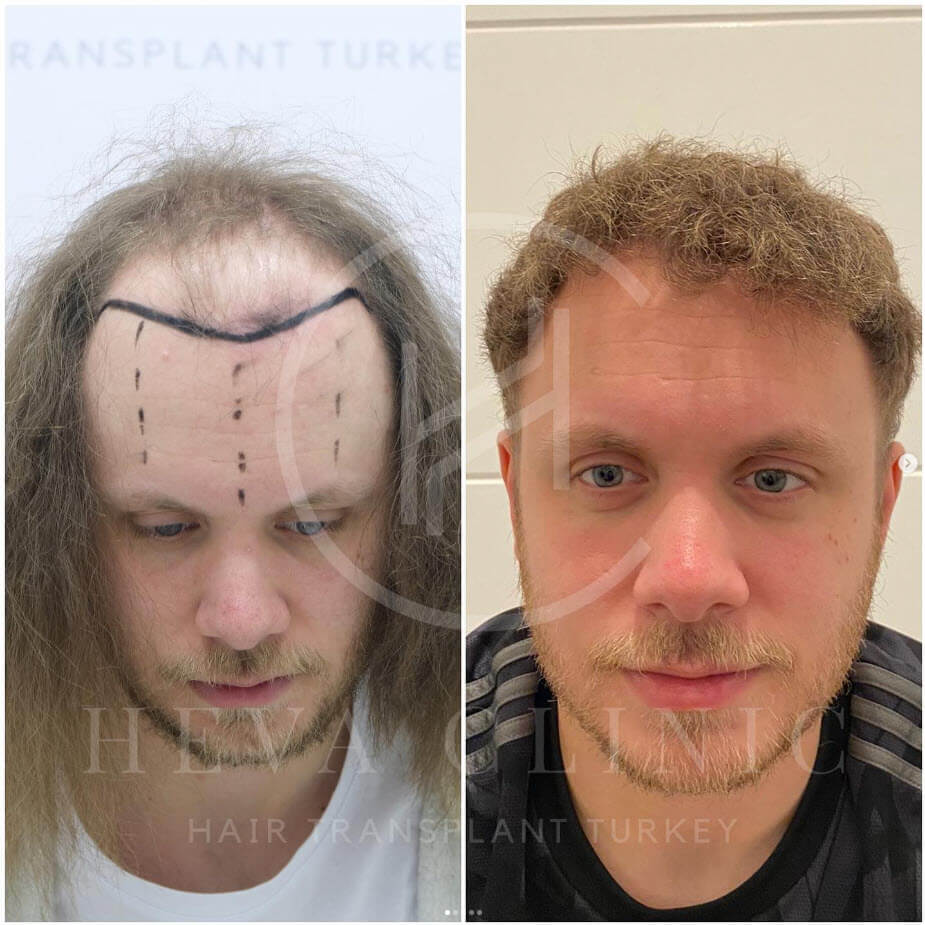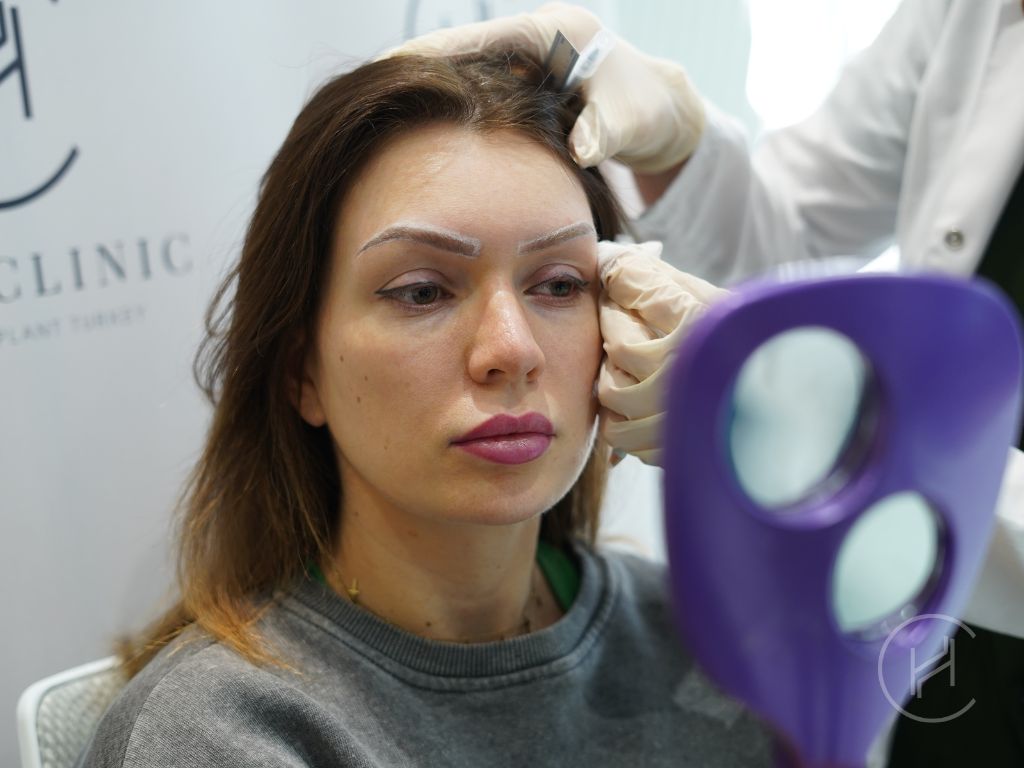
PCOS stands for Polycystic Ovary Syndrome (PCOS) and it is a common sickness in the modern world. Being a hormone disorder, PCOS can manifest itself through a wide range of symptoms. These can be abnormal facial and body hair; also known as hirsutism.
The source of this situation is connected to insulin resistance (a common result of PCOS). Insulin resistance triggers increased production of testosterone in the body, which can cause facial hair to grow. But there is more…
Some patients suffer hair loss from this disorder. More common for females, patterned baldness is a common result of PCOS. Polycystic Ovary Syndrome (PCOS) hair transplant stands as a strong treatment for this situation. In this article, we will be taking a closer look at PCOS and give valuable information about PCOS hair loss treatments and hair transplant.
Can you regrow hair loss from PCOS?
We understand that losing your hair is a heartbreaking, tough situation. However, you should know that this situation is reversible. You are going to need several steps to stop and reverse this process.
Exercise on a regular basis
Strict diet
Healthy androgen levels
Regular doctor check-ups
Pinpointing an early diagnosis gives a major increase in success rate. Regardless of the level of your disturbance, with proper treatment, there is a good chance to prevent and reverse baldness. PCOS and hair loss treatment is a common and effective cure.
What is the best treatment for PCOS hair loss?
Polycystic Ovary Syndrome (PCOS) hair transplant is a popular and demanded cure; however, it does not cure the source of the problem. Patients may prefer several treatments for this disturbance. Your choice should be determined by your doctor according to your age, other disturbances and environmental factors.
It is a hormonal imbalance and therefore needs hormonal treatment. A mixture of the medications might be required according to your body’s response. The best treatment is discovered by research and observation of your body.
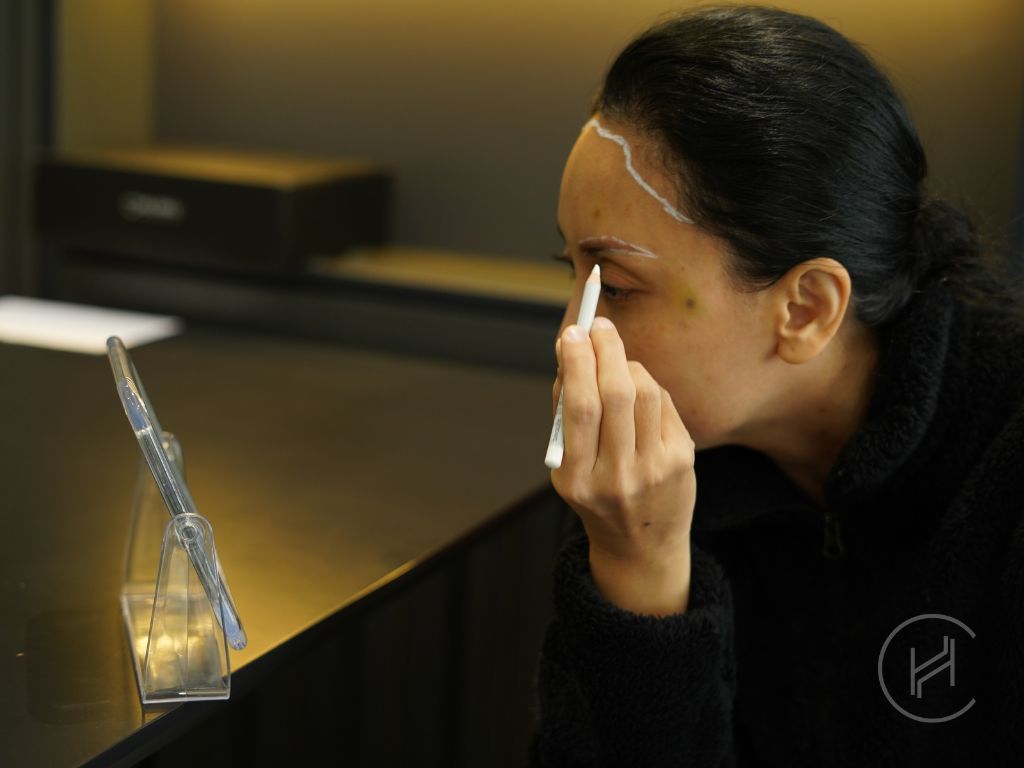
1- Birth Control Pills
Birth control pills have a known effect of lowering androgen levels. They also provide good support against irregular periods and acne problems. Also known as Oral Contraceptive Pills, these are often used with other androgen-lowering drugs.
2- Rogaine (also known as Minoxidil)
Being an FDA-approved drug, Minoxid is widely used for female pattern baldness. It is one of the most popular treatments for PCOS and hair loss treatment.
2.1- Does minoxidil work for PCOS hair loss?
Considered one of the best answers for female pattern baldness, minoxidil increases hair growth. In some cases, it even gave better results than before. Therefore, it is a good cure for PCOS hair loss.
3- Finasteride (also known as Propecia)
For male pattern hair loss, Finasteride is an FDA-approved hair loss treatment. It is very popular for male patients as it’s been on the market for 30+ years.
3.1- Does finasteride work for PCOS hair loss?
PCOS hair loss is a disturbance suffered by both sexes. Finasteride is often used for male patients. For females, some doctors claim that there is sufficient evidence that it can be used. However common thought is that finasteride has mixed results and problematic side effects for women.
Can I get a hair transplant with PCOS?
Hair transplant for PCOS is a common thing. Using the hair on the scalp, hair follicles are transformed into the balding area. Being a surgical procedure it usually takes several procedures. Being a popular and commonly used method, Polycystic Ovary Syndrome (PCOS) hair transplant has a very high chance of success.
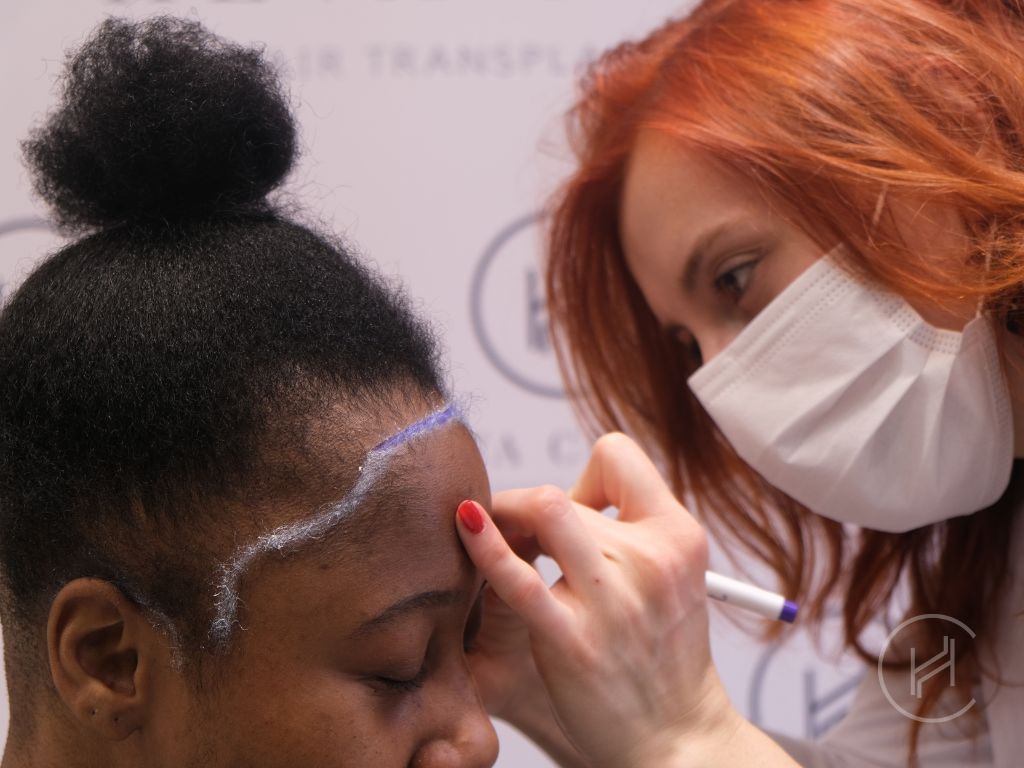
Is hair transplant a permanent solution for PCOS hair loss?
While the success rates for Polycystic Ovary Syndrome (PCOS) hair transplant are very high there is a slight chance for the hair transplant procedure to fail. This can be avoided if you follow your doctor’s advice, diet and maintain a healthy mental state in your daily life. For most cases, a hair transplant is a permanent solution.
How long does a hair transplant for PCOS take?
The time required for a PCOS hair loss transplant process is determined according to the technique and number of grafts used. FUE and DHI techniques takes nearly 7 to 8 hours and it is considered relatively more effective.
Do I need to shave my head for the surgery?
You don’t necessarily shave your head for a hair transplat surgery. If you are using FUE treatment for Polycystic Ovary Syndrome (PCOS) hair transplant you might need to shave the donor area. However, there are Unshaven FUE and completely no shave methods that does not require you to shave your donor and recipient area.
How long does the recovery process take?
For the first and second days after the surgery having a doctor’s check-up is recommended. Hearing your doctor’s advice and applying them will mean that you won’t need to see your doctor again about your Hair transplant for PCOS.
You can expect to have magnificent results after 12 months of surgery, in most cases. Check out our Hair Transplant Recovery Timeline for further information.\
How many hair grafts do I need?
The answer to this question varies according to the patient and the condition of the hair such as having a wide forehead and suffering from a female pattern hair loss.
Generally, it takes 600 grafts for minor hair loss. More than 3000 grafts might be needed for more serious balding cases for.
Feel free to get in touch with our doctors to gain the best answer and treatment for your Polycystic Ovary Syndrome (PCOS) hair transplant.

